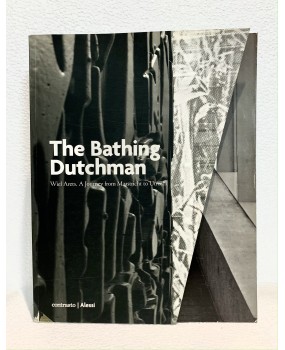



L'immagine in anteprima è una fotografia che rispecchia le reali condizioni del libro.
***I libri danneggiati sono libri d'occasione, nuovi ma provenienti dalle eccedenze di magazzino e dagli stock di copie invendute dalle librerie o fiere. I libri sono pienamente integri, anche se quelli più datati potrebbero presentare segni di usura sulle copertine e/o al loro interno***
 Tutti i tuoi acquisti sono protetti con i migliori standard SSL e certificati !
Tutti i tuoi acquisti sono protetti con i migliori standard SSL e certificati !
 Spedizione veloce e con tracciabilità per seguire il tuo prodotto.
Spedizione veloce e con tracciabilità per seguire il tuo prodotto.
 Tutti gli acquisti godono del diritto di recesso.
Tutti gli acquisti godono del diritto di recesso.
22x28 cm
192 pages
120 photographs and pictures
paperback
BODY AND WATER. Our relationship with water is more profound than that with any other element on earth. Of course air and light are very important to every living thing, but water has a value that extends beyond the need to ingest it. Our bodies consist of 50 to 75% water, depending on our age. By far the greatest part of the earth, as yet the only known place in the universe to contain life, is covered by water in one physical form or another. Water is food for our 70 trillion cells, so that we may function; as ice and snow, it is a substance on which living creatures can propel themselves forward.
Perhaps the most relaxed relationship we have with water in its liquid form is when we go swimming, or when we wash ourselves with it daily to cleanse our bodies. The gentle surge of the sea may be regarded as one of the most relaxing of sounds, nor do we ever tire of watching running water or gazing at a waterfall.
There is a centuries-old tradition that shows that we humans have made washing and body cultivation part of our domestic culture. The Egyptians, Greeks and Romans had a variety of purification rituals, of which the best-known is bathing in communal spaces. Bath houses, as we still know them today, were places of cleansing and relaxation, and of dialogue. Here, minds were sharpened and contacts made; besides relaxation it was the place where the foundations of cultural development were to be found. Only the exceedingly rich had a place for these activities in their own homes.
The first toilet, shower and bath, known to us from illustrations, are not that far removed in form from the ones
made today.
Culture, relaxation, nutrition and hygiene, whatever their relation to water, are arguably the most important reasons why our average lifespan has increased by 30 years during the past two centuries.